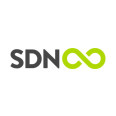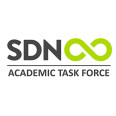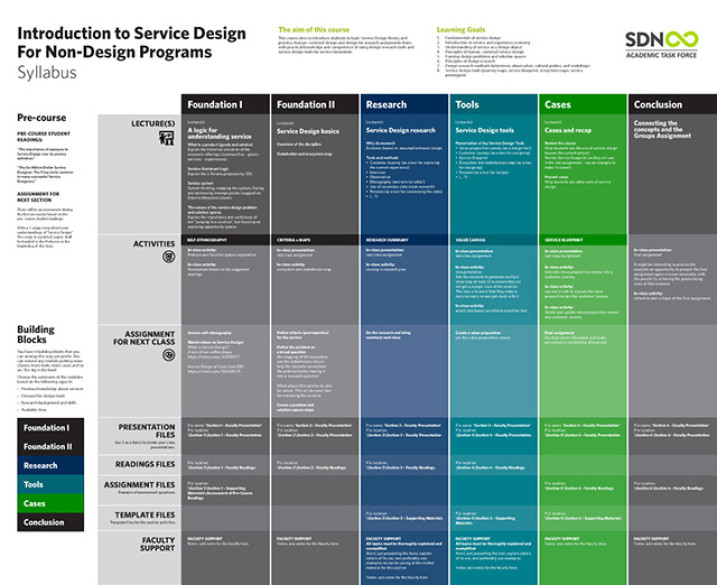
About SDN Academic Task Force

The SDN Academic Task Force - SDN-ATF
 SDN Academic Task Force,
Education
SDN Academic Task Force,
Education
The SDN Academic Task Force (SDN-ATF) was created in June 2018 with the goal of understanding how the SDN community could support and provide value for the Academic Community.
History
This initiative was suggested as one of the results of the '2017 SDN Academic Challenge' report (under N.D.A.).
That report was produced as a part of a service design course, taught at the Savannah College of Art and Design, in the fall quarter of 2017 covering a period of time between September and November. The report was created entirely by the students: Murphy Basore, Shreya Dhawan, Siddhant Patel, and Sin Yuk Yu Ada. Survey respondents and interviewees of this research project are confidential and will remain anonymous.
One of the key outcomes of the research was identifying three types of academic groups (each described below). In order to fully understand the stakeholder’s context, a survey was conducted targeting three types of individuals. The goal was to understand their levels of interest and participation in service design and academia.
In total, there were 120 responses. Due to timing constraints, only 114 out of the 120 responses are considered in that report. Of the 114 responses, 46 currently teach service design, 53 are either planning to or are interested in teaching service design in the future, and 15 had no plans of teaching service design in academia.
The identified groups were:
- Type I: this group is composed of 46 service design academics, who started teaching in two decades, laying the groundwork for service design in academia.
- Type II: composed of 53 individuals, this group was divided into three sets, depending on when they plan to enter into the field of service design in academia: short-term (within 1 year), mid-term (within 2-3 years), and long-term (entering within 4+ years).
- Type III: the 15 individuals of this group, named “the public”, are interested in service design, but are not currently part of academia. Though, depending on when they plan to enter the community, they will significantly add to the overall population.
SDN-ATF Initial Group
Based on the report mentioned above, the first step taken was to create a group of people from around the world interested in service design education. After an open call for volunteers, the initial group started its activities in June 2018.
The SDN-ATF Initial Group is composed by the following people:
- Alan Hartman , University of Haifa, Israel;
- JiaJia Chen , Nanjing University of the Arts, China;
- Joan Ball , St. John's University, USA;
- Ksenija Kuzmina, Loughborough University, United Kingdom;
- Mauricio Bejarano, EAFIT University, Colombia;
- Mauricio Manhaes, Savannah College of Art and Design, USA;
- Mauricy Filho, University of Twente, Netherlands;
- Ricardo Martins, Savannah College of Art and Design, USA (in 2018, he was a faculty at the Universidade Federal do Parana, Brazil).
After a new round of research, focused on identifying and getting to know non-design academics interested in teaching Service Design, the results suggested that their interest was on obtaining support for start teaching service design at their academic institutions.
The Syllabus
The SDN-ATF immediately started to work on which and how potential supports could be provided. What emerged from several interviews with these academics was the production of a syllabus structure entitled 'Introduction to Service Design for Non-Design Programs.'
A first version of the syllabus was created and applied between March and May 2019 in an academic context at the University of Twente, in collaboration with Loughborough University London and the SDN Academic Task Force. After the feedback, the syllabus got a new and improved version.
In November 2019, that new version was applied at the Lancaster University, UK.
After a new round of improvement, and the addition of valuable suggestions from Lancaster University faculties and students, the first public version of the syllabus was made available in September 2020.
The next step will be the release, in December 2021, of the syllabus versions in Spanish and Chinese. Other languages will be added as they are made available.
The Value Proposition
The syllabus has an open-access version with the goal of providing as many academics as possible a solid first step into initial efforts on teaching service design.
The main focus of the syllabus will be non-design related faculty and academic programs interested in starting teaching service design.
The suggested offering will have:
- Open access syllabus, with SDN open-access and members-only articles and case studies;
- Members-only syllabus, with extended faculty instructions, teaching materials list, and limited access to the Academic Fellows;
- Short paid introductory self-paced e-learning on how to implement the syllabus offered by SDN Academia;
- 3-day in-depth presential courses, taught by SDN Academic Fellows, offered regionally by SDN Academia;
- Teaching materials relating to the syllabus developed by SDN Academic Fellows as paid content;
- The SDN Academic Fellows presented as regional education consultants that can be hired to support the implementation of the syllabus (similar to the SDN Accredited Trainers).
Evolution
The evolution imagined for the SDN-ATF is to have members with a 2-year mandate, being replaced through a process of open-call for faculties. Once each mandate is over, the members of such a cohort will be designated as SDN Academic Fellows, constituting a permanent consultative board for the current SDN-ATF members. A directory of fellows will provide structured access to Service Design faculties by regions, expertise, and types of programs. It will be the responsibility of the SDN Academic Fellows to select the volunteers for each cohort. The open call for new members volunteers will be made by the Fellows, in the months of June, every other year. The newly selected members will be entrusted in the subsequent month of January. The fellows will be charged with maintaining and updating the processes and rules for the candidacy and selection of faculties interested in volunteering to one of the 6 positions of the SDN-ATF.
Contact
For further details, please, get in contact by sending an email. Your message will be responded to as soon as possible.
Download the Syllabus
Introduction to Service Design For Non-Design Programs
You can also download a 1-page version of it here.
Share your favorite projects with our community:

Syllabus in One Page
Introduction to Service Design For Non-Design Programs
You can also download a 1-page version of it here.
SDN’s contributions
How to contribute
SDN Academic Task Force
Continue readingRelated members From the same Organisation



